Emily Majerus was “super pumped” when she was first hired to work as a staff nurse in outreach clinics for University of Iowa Health Care in 2015. “As a nurse, we all want to work for the university. When you look at the ways that you can help and the things that you have access to here, it’s just incredible.”
But even before Majerus arrived at Iowa, before she took on her current role as a clinical health care research specialist in the HIV / AIDS Clinic, Majerus understood that caring for people meant looking at the whole patient. The “holistic relationship,” as she calls it, means more than just treating symptoms, but guiding people toward the resources that will enable them to sustain good health for as long as possible.
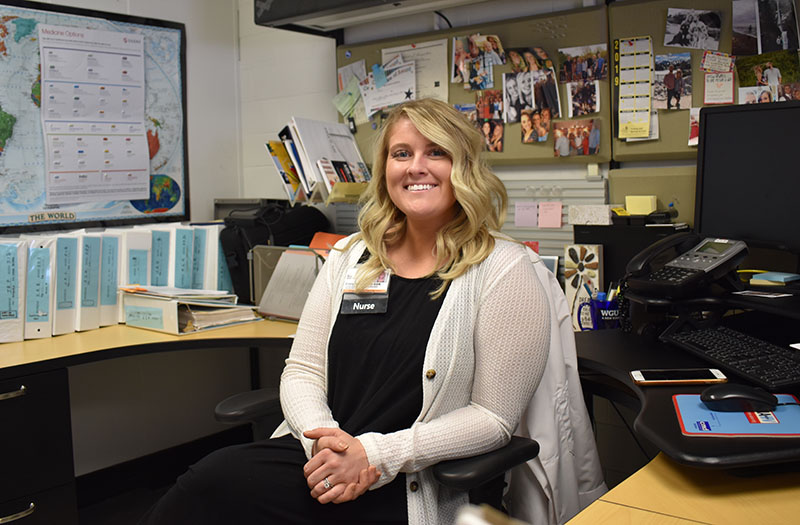
Building relationships
After brief considerations of pharmacy and then journalism in college, Majerus decided that her part-time job as a certified nursing assistant was more fulfilling than anything else. “I’m sure anyone in healthcare has that same root cause, wanting to help people. But I really love it.” It was not long after completing her first nursing degree at Kirkwood and a year of working tough overnights at Mercy Hospital in Cedar Rapids, “earning my badge,” that Majerus decided that she wanted more extended connections with patients, rather than the quick turnover one found in the hospital setting.
She spotted an opening with the Visiting Nurse Association of Johnson County and began managing a case load of as many as 50 clients at any one time. Majerus was on the front line, supervising home aides, making sure discharge instructions and medication regimens were followed. It was during this time that Majerus began to dramatically expand the number of factors she would have to consider in evaluating and documenting someone’s health for their primary care physician. She might offer a little extra nutrition education to help someone with diabetes avoid risky foods. In another home Majerus needed to make a safety assessment to clear dangerous, fall-inducing obstacles.
The work was intense, especially when the occasional “full moon” event would find Majerus suddenly swamped with multiple calls all at once. Even now, though, she still sees the value–and the future–in home health care: “Someone might only need to see their primary care provider every six months, but they could also really need someone to stop in and check how their med compliance has been after three.” Majerus sees the visiting nurse as a bridge, able to report back to the provider, able to catch problems before they become emergencies.
Short drive to leadership
It was her comfort with traveling to new locations and with the variety of cases she 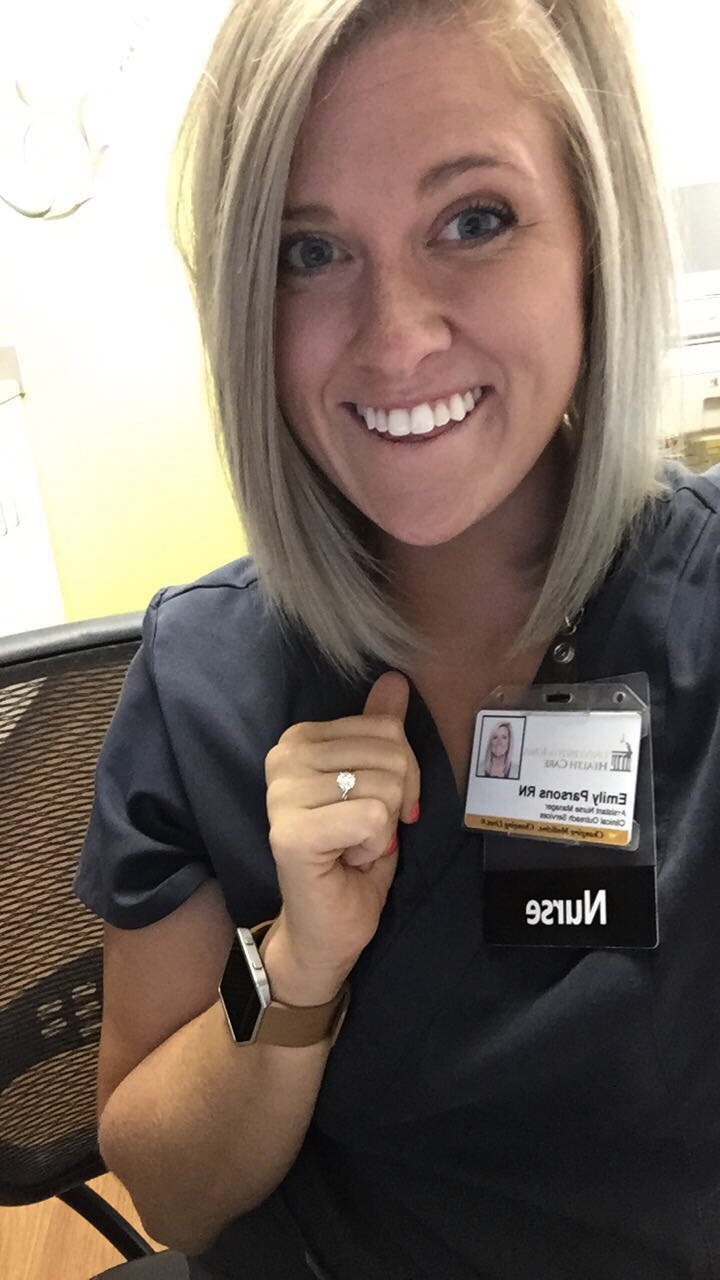 would encounter that made her transition to Iowa’s outreach clinics–now known as UI Community Clinics–such a smooth one. Though Majerus would accompany physicians mostly to clinics in the eastern half of the state, those trips could still mean four hours of drive time in addition to a full day in a clinic. Majerus appreciated the opportunity for new perspectives, both from the communities she served as well as the variety of clinicians she rode with.
would encounter that made her transition to Iowa’s outreach clinics–now known as UI Community Clinics–such a smooth one. Though Majerus would accompany physicians mostly to clinics in the eastern half of the state, those trips could still mean four hours of drive time in addition to a full day in a clinic. Majerus appreciated the opportunity for new perspectives, both from the communities she served as well as the variety of clinicians she rode with.
The list of specialties she saw around the state is almost as long as the list of specialties provided here in Iowa City: adult and pediatric versions of urology, pulmonology, cardiology, the HIV virology clinic, genetics, gastroenterology, liver and liver transplant, endocrinology, and more. Standout providers she cited included Linda Cadaret, MD, and her work with complex heart failure cases. Moshe Wald, MD, and his urology clinic helped teach Majerus about treating the whole patient. “You could see,” she said, “how grateful patients were for access to that kind of expertise, saving them that long drive to us.”
After only about six months in the role, Majerus was promoted to assistant nurse manager, initially on an interim basis, but then permanently, after some restructuring and leadership’s awareness of her effectiveness in the role. Majerus was suddenly responsible for scheduling and tracking more than a dozen nurses and staff members ensuring access was maintained while not stretching team members too thinly. “It taught me a lot about understanding and respect,” she said. She oversaw the implementation of new ways to automate and improve scheduling’s efficiency and accuracy and her innovations helped cut down on the need for overtime.
One department, many skills
Two years later, after some more restructuring and an exponential increase in the scope of her responsibilities, Majerus was approached by Jack Stapleton, MD, professor in Infectious Diseases and longtime director of the HIV / AIDS clinic. “I knew him from the car rides,” Majerus said. “I loved how he cared for his patients.” Stapleton told her that the clinic’s program nurse had just taken another position elsewhere and asked if Majerus was interested in coming to work for him.
“He said he didn’t think he would be able to sway me,” Majerus recalled. She said he recognized that she was on a different kind of ladder, with increasing responsibilities in nursing leadership, but he was “just letting me know.” His timing, Majerus said, was pretty good. Engaged to be married and already starting to think about whether working fewer and more predictable hours was preferable in this next phase of her life, Majerus was at a career crossroads. She took Stapleton’s offer to become the HIV program nurse.
And now, although she is nominally associated with just one department, in one 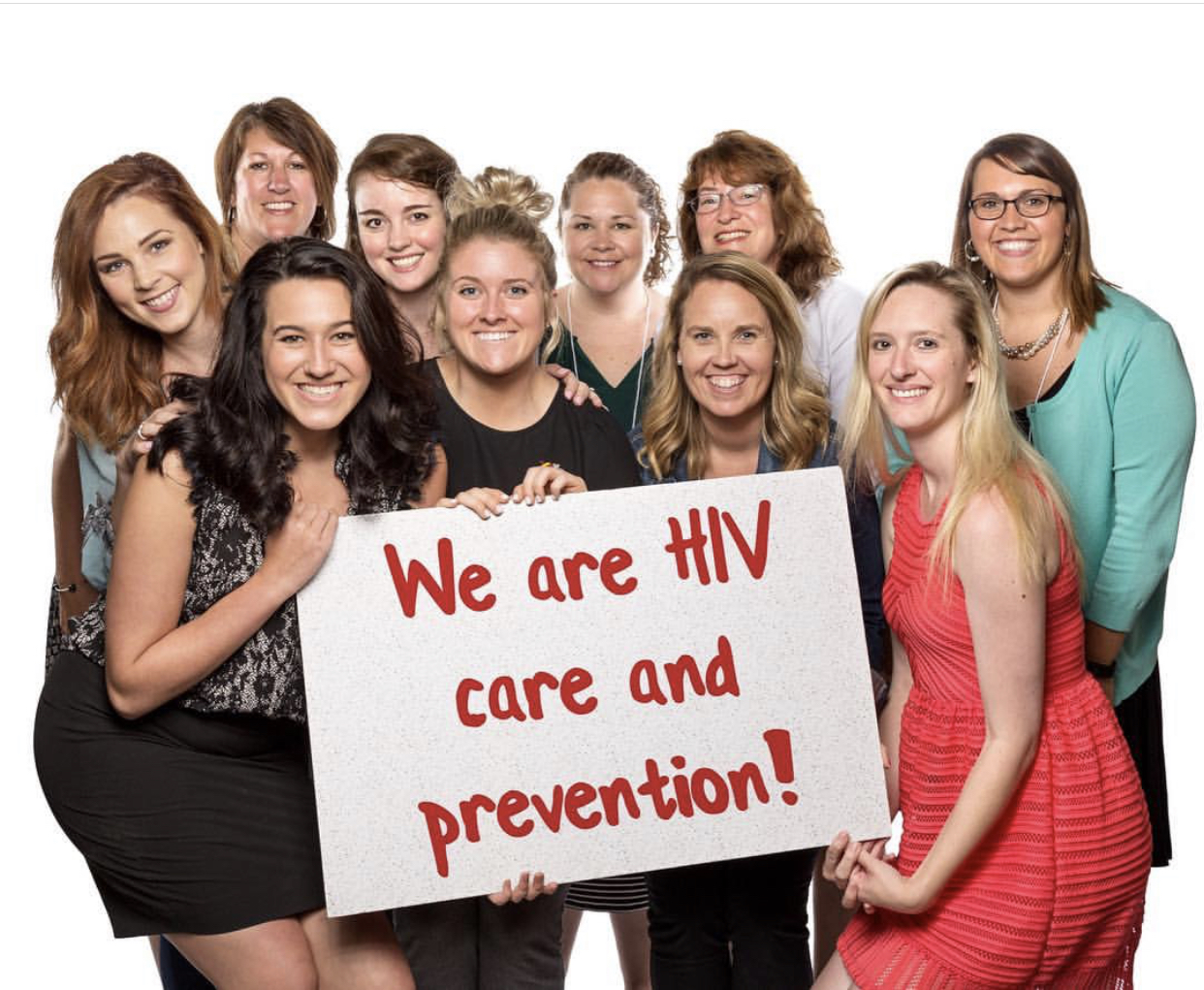 specialty, she still draws on her years of expertise with managing multiple cases and with treating the whole patient. Funded by Part C of the Ryan White Program and the only nurse in the clinic, Majerus helps triage new arrivals to the HIV / AIDS clinic, assesses their current status, reviews their history including their adherence to previous treatments. She connects them to other critical members of the clinic when necessary, such as the Part B-funded case managers or insurance specialists.
specialty, she still draws on her years of expertise with managing multiple cases and with treating the whole patient. Funded by Part C of the Ryan White Program and the only nurse in the clinic, Majerus helps triage new arrivals to the HIV / AIDS clinic, assesses their current status, reviews their history including their adherence to previous treatments. She connects them to other critical members of the clinic when necessary, such as the Part B-funded case managers or insurance specialists.
Clinic program manager Tricia Kroll, LMSW, has been thrilled to have Majerus on the team. “Her compassionate nurse skills and her interest in administration and quality improvement,” Kroll said, “are great assets.” Stapleton agrees with Kroll. “She’s incredibly well organized,” he said, “and has provided caring and thorough input into the care for our patients.” Majerus is hoping to expand her understanding of other aspects of the clinic’s activity, such as its research and clinical trial portfolio. Rina Chaudhary, PhD, EdS, manages a lot of this work and would welcome the opportunity to work more with Majerus. “Emily is an amazing person, full of energy and vitality,” she said.
Focus even on the off-hours
Now that the wedding is out of the way and she is nearing the end 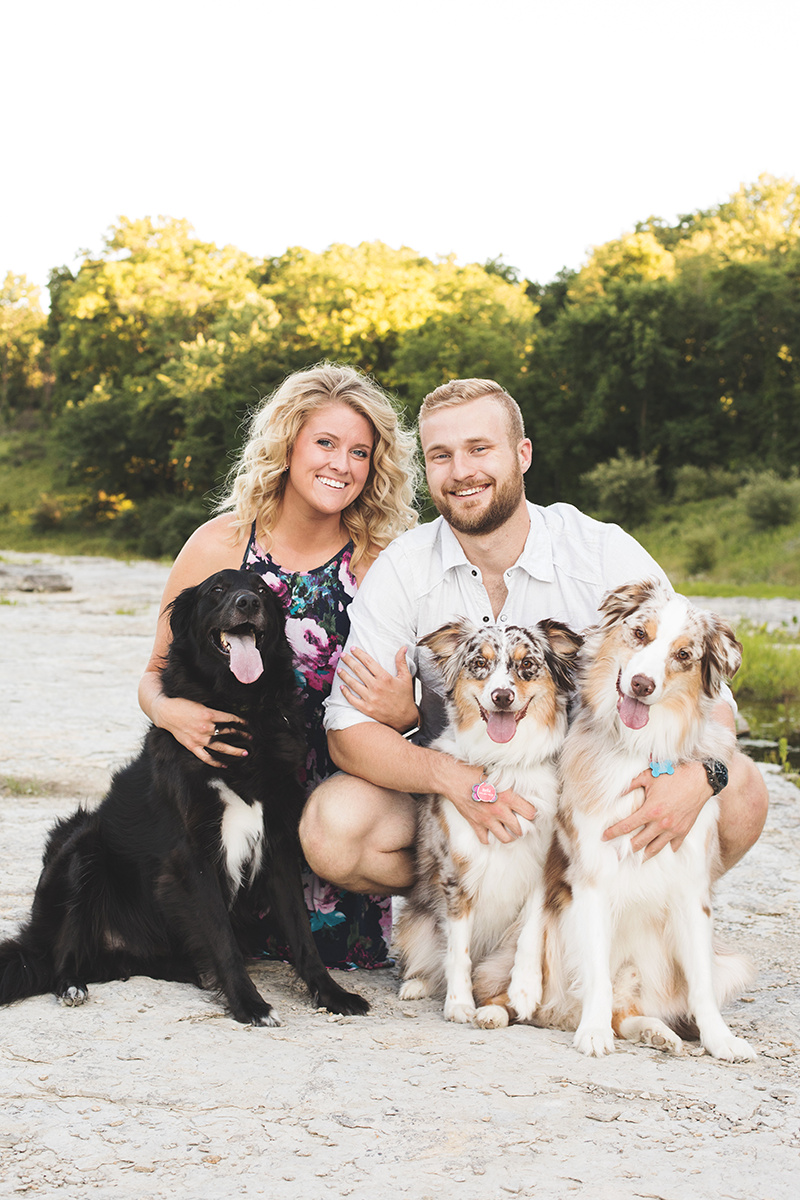 of her Master’s program, Majerus is already expecting her coming free time to fill. She and her husband, a personal trainer at a local fitness center, are close with his nearby family and are active in their church. They also make time to see her family, including a brother in school here and others in southwest Iowa. Their three dogs–two Aussies and a retriever–are also somewhat demanding. “And shedding!” Majerus jokes.
of her Master’s program, Majerus is already expecting her coming free time to fill. She and her husband, a personal trainer at a local fitness center, are close with his nearby family and are active in their church. They also make time to see her family, including a brother in school here and others in southwest Iowa. Their three dogs–two Aussies and a retriever–are also somewhat demanding. “And shedding!” Majerus jokes.
More important to Majerus, though, is that she find a way to give back. “I feel lucky,” she says reflecting on the path that brought her here. “A lot of what I have gotten to take part in is because of a connection I had to someone else.” She wants to be a connection for others. “Working in trauma-based care, you learn a lot about cultural humility. How can I be a good advocate in our community? It’s important to have those conversations with the people around you.”
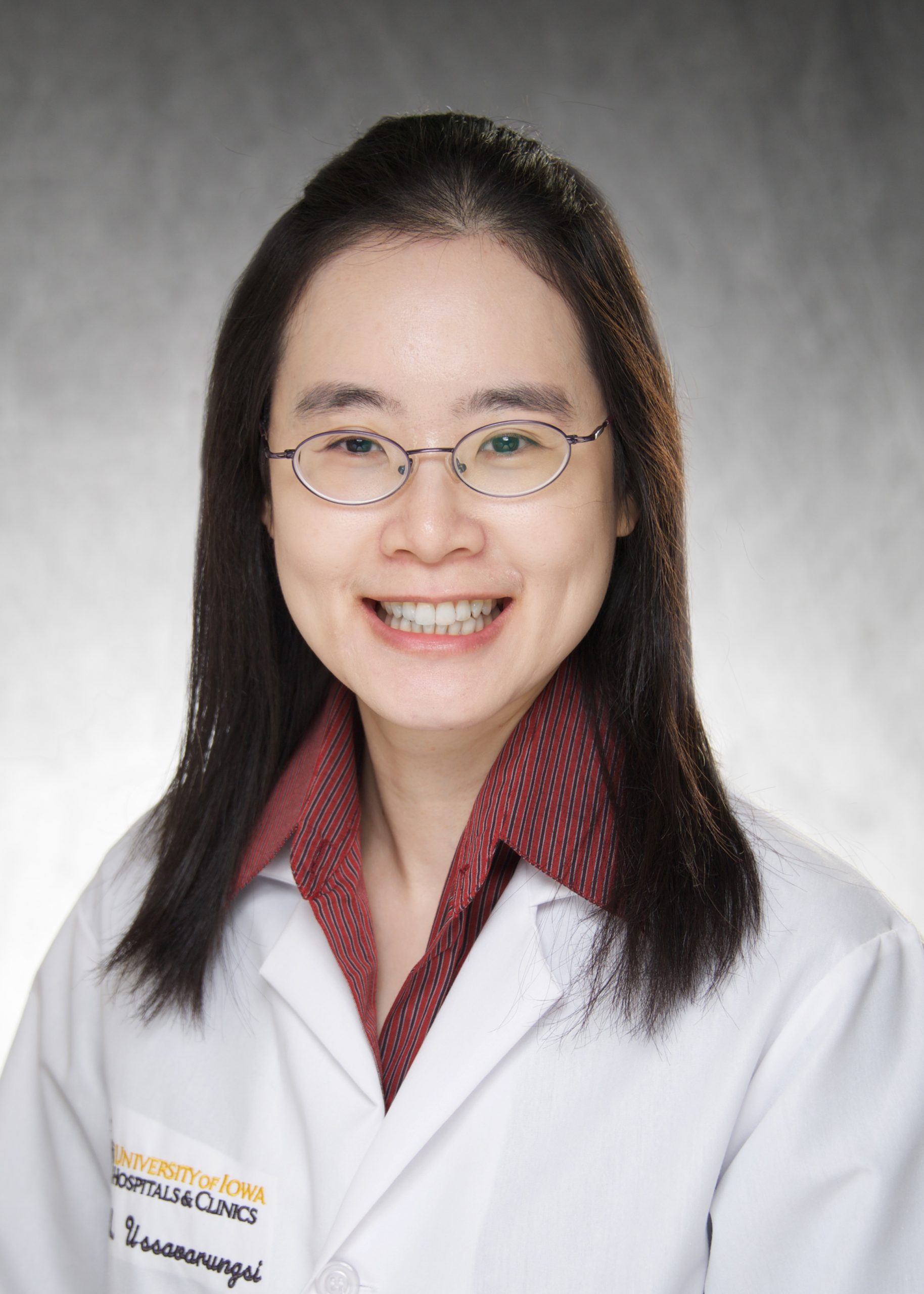

This is what UIHC administration should be fostering and recognizing. Great, holistic, patient care. Thanks, Majerus.
Wow, great article and fun to see the joy in work and service to many! You make Iowa and the country proud.
Working with Emily, one can tell that she really cares about patients!